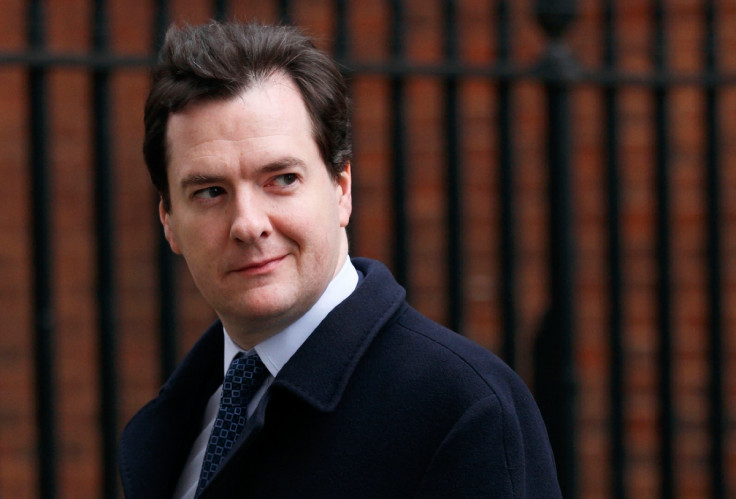A second financial crisis would benefit the smart and ruthless Tories

I was a student living in Liverpool when Lehman Brothers filed for bankruptcy in 2008. I spent most of that week obsessively refreshing the webpages of news websites. It didn't seem as if a bank was collapsing, but the entire edifice. After spending the majority of my life under a Labour government that shied away from asking big questions about the system, I thought this extraordinary event might provoke a mainstream debate about capitalism itself.
There was a distinct moment when I suspected that debate wasn't going to happen. I was walking to university when I saw a flyer taped against a lamppost. It was for a lecture being held by a socialist group, entitled: "What Marx can teach us about the banking crisis." Was this the left's contribution to understanding the financial crisis – a sterile intellectual lecture on Marxism? If so, we were screwed.
In his book The Political Brain, author Drew Westen argues that a good political story is consistent, memorable, full of vivid images and emotional metaphors and simple enough to be readily understood and retold. If Westen is right, then the British left comprehensively failed to tell a good political story about the financial crisis. In fact, it could be argued that it failed to tell any story about the financial crisis.
It's true that the ability of the left to respond to the financial crisis was encumbered by a deeply unpopular Labour government. It's also true that the media is largely right-wing. But perhaps because New Labour had absolutely nothing of note to say about capitalism during its time in power, when the financial crisis happened, the principal problem the left faced was that it could not come up with a convincing narrative that resonated with the public.
Our government is borrowing more than the Labour government before it, and the public still believes that it is getting finances under control by cutting spending
The Tories, on the other hand, could – and you've probably already heard it. Labour had left a mess, our economy was in danger, we'd maxed out the nation's credit card and we needed to live within our means. Anyone who has spent a significant period of time talking to the average voter has probably heard this argument being recited back to them almost verbatim.
The upshot of this disparity was the fact that austerity – a measure that is now largely viewed as ineffective by most economists – was accepted by a majority of the British public. In fact, research shows that public belief in the necessity of austerity has remained virtually unchanged since 2011. Our government is borrowing more than the Labour government before it, and the public still believes that it is getting finances under control by cutting spending.
I remember speaking at many left-wing events in the early days of the Coalition government and hearing the argument that when the cuts were finally felt by the public, there would be a popular revolt against austerity. In fact, austerity has only become further entrenched as an ideology because there have been no alternative economic ideas articulated in the mainstream. In 2015, I went to an event where Nick Pearce, then head of the progressive thinktank IPPR, described austerity as "fiscal realism". This demonstrates how an idea with almost no basis in economics became received wisdom.
Austerity has only become further entrenched as an ideology, because there have been no alternative economic ideas articulated in the mainstream
Eight years on, the prospect of another financial crisis is looming on the horizon. I've heard figures both inside and out of the Labour Party argue that, if it happens on the Tories' watch, the public may start listening to Jeremy Corbyn. They are wrong. The Tories didn't capitalise from the first financial crisis because it happened under Labour. They capitalised upon it because they made a concerted effort to do so, and were smart and ruthless to boot.
If the left fails to come up with a convincing argument, a second financial crisis will simply consolidate the dominance of the Tories. George Osborne has already started laying the groundwork for another economic downturn, arguing last Sunday that "the storm clouds are clearly gathering in the world economy and that has a consequence for lots of countries, including Britain... So we may need to undertake further reductions in spending because this country can only afford what it can afford."
The Tories didn't capitalise from the first financial crisis because it happened under Labour. They capitalised upon it because they made a concerted effort to do so, and were smart and ruthless to boot.
Osborne's argument may not be positive or even accurate, but it is memorable, consistent, vivid and simple. It is an explanation for a second financial crisis that makes sense to most people. And right now, it is the only explanation being made at all.
The public may be cynical about Osborne, but it is unlikely they will believe left-wing arguments about the economy if those arguments are not made clearly and repeatedly. After all, most people simply don't have time to engage with politics in any depth on a regular basis.
The economist Milton Friedman famously said: "Only a crisis − actual or perceived − produces real change. When that crisis occurs, the actions that are taken depend on the ideas that are lying around." If there is another financial crisis, the right is starting to put out its ideas for people to pick up. So, my fellow left-wingers, I ask you: what are ours?
© Copyright IBTimes 2025. All rights reserved.





















